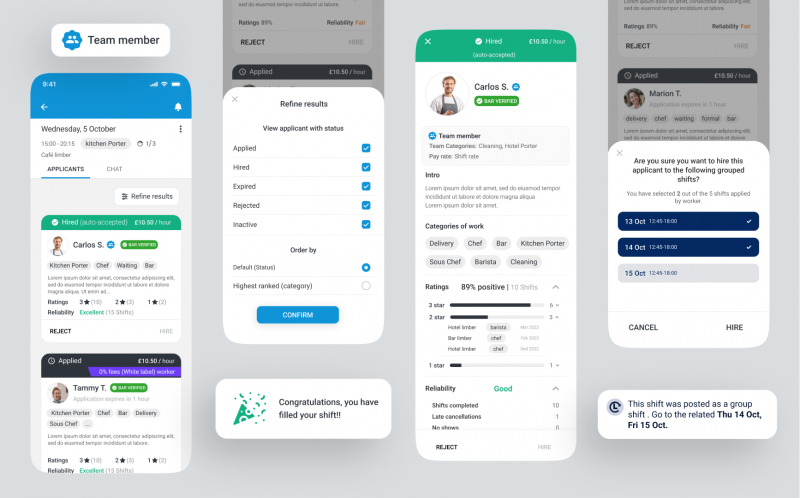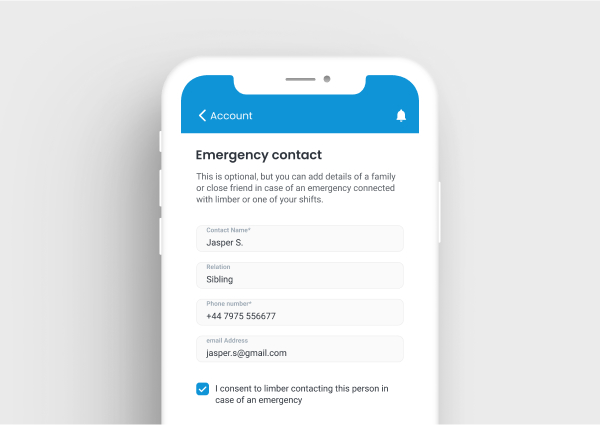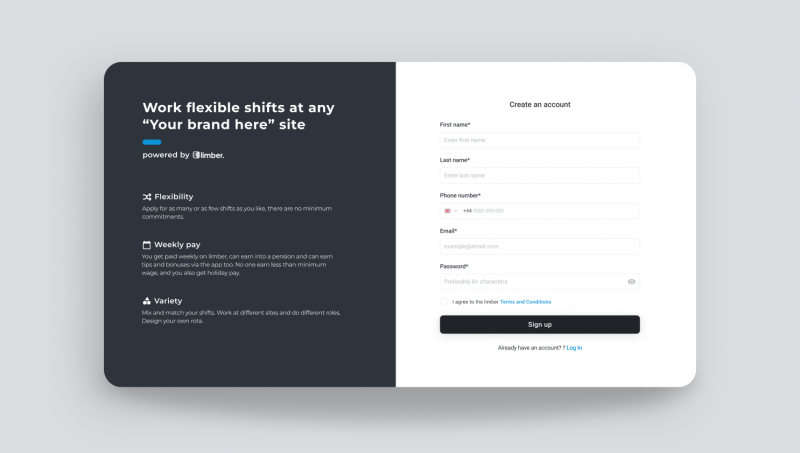Business can be complex at the best of times, but what happens when a pandemic hits and forces the world into shutdown? We took some time to reflect on the past four months and spoke to Chris about the realities of running a business during a pandemic, what it’s like to manage a fully remote team, and lessons learned in lockdown.
Q: Lots of people have had to change the way they do things over night. How has Coronavirus changed the way you approach running your business, have you had to diversify?
C: I think ‘diversification’ is the word for when you strategically plan to broaden your business offering based on research or market appetite. I think we should invent another word for what everyone’s doing now! The world has gone slightly diversification or pivot mad. It’s understandable, but there are a lot of pretty poorly thought through and rushed products and services out there right now!
What we’ve chosen to do is broadly to carry on as usual, but within this new context. When you and I spoke this year about our goals for 2020, we had two of them and we’ve achieved both.
One was to broaden limber’s offering to give our users the ability to work together no matter their skills, but all within hospitality. So before Covid-19 was a global pandemic, we’d already added delivery, cleaning, social media management to our platform. The other was to work with partners in other sectors to white label our technology and broaden its impact – we’ve done that too.
Q: How has Covid-19 affected what’s important to you when it comes to running your businesses – have your priorities shifted at all?
C: Look after cashflow and invest in product. Those were two very important things anyway, but having a long runway is important and if we can use this time to advance our product, then that’s a bonus.
It’s also just solidified the importance of short term goals – long term plans are out the window right now (not sure they were ever in the window), so it’s about taking many small steps and hopefully adjusting to the changing world out there as we go.
But as a word of caution against that, it’s also important to maintain a sense of direction and not to radically veer in new ones too often – it’s really difficult to keep motivation going if you do and unsettling for the team.
Q: What have you learned about managing an entirely remote team? Has anything surprised you?
C: I’ve been gobsmacked by how well it’s worked. We were a digital only business anyway, so it was never going to be an operational challenge, but I’ve been so impressed with how much we’ve got done. In lockdown, we’ve added 20 new features at least, white labelled our technology for the horticultural businesses, furloughed all limber app workers, built a new onboarding widget for hirers, achieved Innovate UK funding and added a further 20 categories of work to the app. It’s worked so well that every job ad we offer from now on can have a fully remote option.
In terms of what we’d do differently, I think we’ve probably underestimated how long it would go on for – and we could have put in place more social events online between us to keep morale up – I know there have been some days where we’ve all felt a little flat so I think we could have done more here.
Q: So with that in mind, what are your thoughts towards working from home full time – is it something you’d ever adopt?
C: I wouldn’t want to go 100% from home, but before I was probably 100% from the office and I think that’s unhealthy too. I think what it’s shown is we probably have a lot of distractions in an office, which can interrupt flow. It’s not about working harder, it’s about achieving flow – it’s great for mental health and if it means we can get work done faster, and make more time for other things, then it’s win win.
I also think it’s helpful for you guys to work without me there – it’s hard as a founder to let go, and it probably helps with autonomy if I’m not there breathing down your neck each day (I do try not to!). If I had to guess, I’d say I’m heading for a 60/40 split in favour of working from home (or cafe’s) to working in the office. What about you?
E: Probably about the same, I miss the office, and people! But it seems silly to do just one if you’ve got the opportunity to have the best of both worlds. I think a change of scenery always helps increase productivity too.
Q: How have you approached looking after employee wellbeing, have you noticed any differences in how you’ve had to support your team?
C: I think we could have done more here. I’ve personally been taking lots of time out for runs and sport and walking the hound. But, I’m not sure that message has filtered down that well because we’re not with each other each day.
We have done some social stuff online, but I was conscious that lots of us had video-call fatigue so it was a bit limiting for a while. I hope we can continue to adopt a really healthy approach to work and all make more time for our hobbies, but we’ll have to continue to monitor it.
Q: What would you say your biggest challenge throughout the pandemic has been?
C: Becoming a professional furloughing company has been a little trying! I don’t think the government had platforms like limber in mind when they designed their system, but we’re glad to do it and it’s important.
I also can’t really understand why the furlough scheme was implemented in the way that it was. It seems to be a total waste in people-power to have individuals being paid not to work – that could have been done better, but I appreciate the government’s limitations.
Otherwise, from a personal perspective it’s been important to give yourself a break. You can’t hold yourself to an unrealistic standard so in times of total chaos, it’s important to remind yourself that everyone is struggling.
Q: So in contrast to that, has Covid-19 presented any positive opportunities that you didn’t expect?
C: Yeah, I didn’t think we’d get our first white label deal away, 2 months ahead of schedule. That was outstanding. And it was great to get Innovate funding (along with a host of support from the Government). But, otherwise, Covid19 is obviously a pretty harrowing experience for people personally and professionally up and down the country and I’m looking forward to seeing the back of it.
Q: Do you feel as if Covid-19 has made you more equipped for dealing with the unexpected/unwanted in the future?
C: We were always pretty robust and one of our strengths has been dealing with uncertainty – that’s really what you sign up for when you start a business. So this has just been another (quite big) bump in the road as far as I’m concerned.
Q: What tends to keep you motivated during such an uncertain time?
C: I think running a business just serves up so many interesting problems to solve that it’s impossible not to stay motivated. Sure, there are days that are less interesting and periods in which you’ve got less momentum than others, but they tend not to last very long. The key for me is accepting the times when things are a bit flat. They’ll happen. They should be recognised, noted and then accepted as inevitable. And actually, I’ve found that more and more I’m taking those periods as time to reflect, recharge and focus on a pet project (inside or outside limber).
Q: Lots of people have said they’ve enjoyed aspects of lockdown – what’s been the biggest positive to come out of it for you?
Yeah, it’s weird isn’t it and it makes you think. I think as a generation (I’m 33) we have a tendency to over socialise and I’ve definitely seen that coming out of lockdown. The diary is starting to fill up and I’m not sure what I feel about that! I’ve also played more sports and been more active than I was before and that’s probably linked to my point above!
Q: Finally, what advice would you give to someone in your position who’s struggling? Maybe to a business owner who’s just starting out and trying to navigate running a business during a pandemic.
Don’t believe people’s hype, the vast majority of people are struggling right now. Stay off linkedin, Instagram or whatever pit of hyperbole you find yourself scrolling through and try and treat the pandemic as the easiest excuse you’ll ever get for things not panning out as hoped. Once you’ve accepted failure as a possibility, or even a likelihood, everything gets that much easier to process.
And if things have got difficult for you, then you’ve got to keep believing that this will blow over. You’ll reset expectations, be thankful for what you’ve got and you’ll rediscover your mojo and go again – it’s the only available option!




